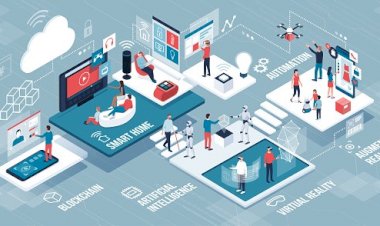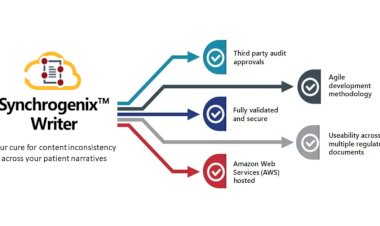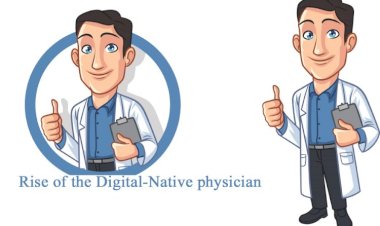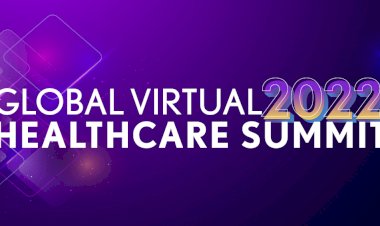HOW STRONG HEALTHCARES CAN DEPEND ON BLOCKCHAIN
creating headlines the Everyday innovative discoveries are breaking out of powerful blockchain technology that are worldwide. Because this blockchain’s promising applications and the potential to impact efficiency and security.

creating headlines the Everyday innovative discoveries are breaking out of powerful blockchain technology that are worldwide. When blockchain brought bitcoin in 2009, it shown its great value in terms of privacy, interoperability and real-time data management, it has certainly got our attention at EMI foundation.
On blockchain there are many companies were started to solve different problems. Because this blockchain’s promising applications and the potential to impact efficiency and security. There are many areas that blockchain can be a perfect technology to setup though this article focusses on healthcare — the possible applications, the hurdles it currently facing and our vision for the future of blockchain in healthcare.
In the digital revolution of computerisation, the healthcare sector has been come following tradition rather than led. However, codification has greatly encouraged IT development in Healthcare, with the approval of the General Data Protection Regulation (GDPR). Following years of debate, the GDPR will be in effect as of May 2018. The GDPR requires improved level of security across the healthcare sector. While providers have previously been free to dictate the terms of their cyber-security and protection, organisation will now have to comply with standard privacy and data requirements. If you or your family have your files stolen, healthcare organisations will no longer be able to avoid taking counter action
A LACK OF TRUST: For the trust in healthcare data security acts as building block in an organisation. Unfortunately, the healthcare sector is having to cope with significant problems in data security. Around 1.13 million patient records were compromised in 110 healthcare data breaches in the first quarter of 2018, according to data released May 3 in the Proetus Breach Barometer. The total number of individuals impacted by breaches last year was 14,679,461. The average global cost of data breach per lost or stolen record lies around the $380 in healthcare organizations, without taking into account the negative impact on the consumer’s trust in the organisation. The cost of data breaches in the healthcare sector in the United States alone, is estimated at $6.2 billion annually
PATIENT RECORDS AND DATA: In the Healthcare, for an Electronic Health Records (EHRs) decentralised blockchain would be an essential model. Further to improve security, blockchain targets interoperability of data between different providers. By standardising healthcare data, it will be far easier to transfer and access data between different systems and providers. And of course, the blockchain can protect patient records even during facilitating interoperability.
MEDICINE VALIDATION: When it comes to data management only trust is not key issue. Its impact on the validation of medicines is more direct and potentially even more serious. As its inherent feature in blockchain technology, this can support the documentation of each step the pharmaceuticals product takes on its journey to the store shelf and the end consumer.
CLINICAL TRIAL RECORDS: Clinical trial records could be described as the internet cache, or cookies, of the medical world. Over the course of their lives, patients build up data that is collected in EHR’s, stored in big data silos with different structures. It is not uncommon for people to switch general practitioner or healthcare provider. This makes it difficult to share the stored data in. In the process of changing providers, data can often be lost. As a result, its value and usability decrease fast.
Blockchain provides more transparent and interoperable solutions for patient data. The data that is so crucial for clinical trials can be scattered across multiple systems that are often incompatible, due to differences either in the structure of the data itself or the architecture of the system. With blockchain technology, data can be decentralised and distributed to other entities in the healthcare ecosystem, while, most importantly, protecting certain aspects of the patients’ privacy. This empowers the patient to decide how much of the data from their EHR they are willing to share and with whom
A BRIEF SUMMARY OF THE ADDED VALUE OF BLOCKCHAIN IN HEALTHCARE:
. Establishing a trust network: giving patients an overview of what data is being shared, while empowering them to decide who they share their health data with — smart contracts.
. Reduced transaction costs: the cost effectiveness of data storage. In cloud computing, the use of blockchain can be an important tool for data transaction.
. Standardised data fields: a lot of data varies in format and is therefore not easily compatible between different systems. Blockchain standardises the format and stimulates interoperability.
. Real-time data management: through the use of blockchain, data can be analysed in real time, which can have many uses — such as tracking medicines, personal subscriptions, etc.
We have started developing a trans-national project to support SME’s in their blockchain development. We will be creating a framework to help SME’s development, test and implement their blockchain solutions. These solutions will handle both local and foreign issues. Blockchain technology can help SME’s reduce operational costs and target external problems and use cases. One of Blockchain’s three focus area will be the healthcare sector.
We bring governments, business and real-world implementation together around blockchain. Application addresses the need for a supportive SME ecosystem, specifically within the healthcare sector. These organisations and SMEs produce information that can be easily accessible. Our goal is to identify the knowledge gaps efficiently gaps efficiently and tackling these via capacities of the network
We see a lively ecosystem in our region, which should prove an effective breeding and testing ground for any emerging blockchain projects. The availability of real life testing grounds is crucial to successful application of solutions. Currently there are very few up and running use-cases which are tested in real life situations. EMI Foundation will change this. For us it is a great motivation to work on a project facilitating an emerging technology with such vast potential.
FUTURE WITH BLOCKCHAIN:
This new technology and its potential in future applications is intriguing. Maintaining a sober and analytical attitude is essential. On its own, we don’t predict blockchain will be the biggest disruptive technology from this decennium. However, in combination with other developments in technology, such as cloud computing and artificial intelligence, it has an excellent opportunity to become the ultimate supportive tool to tackle security and privacy issues.
The technology itself is still in an early phase, it will take time for blockchain to spread across the healthcare market. Once the technology has sufficiently progressed, there will be many possibilities to reduce the costs and efficiency of data operations in healthcare. The healthcare industry should first focus on tackling the smaller applications, before trying to revolutionise the main pillars of electronic health care. Step by step, we will see blockchain applications entering our daily lives. The future looks very bright, considering all the possibilities of blockchain, which would allow for the safe and efficient exchange of data across organisations.

 Meghana
Meghana 































